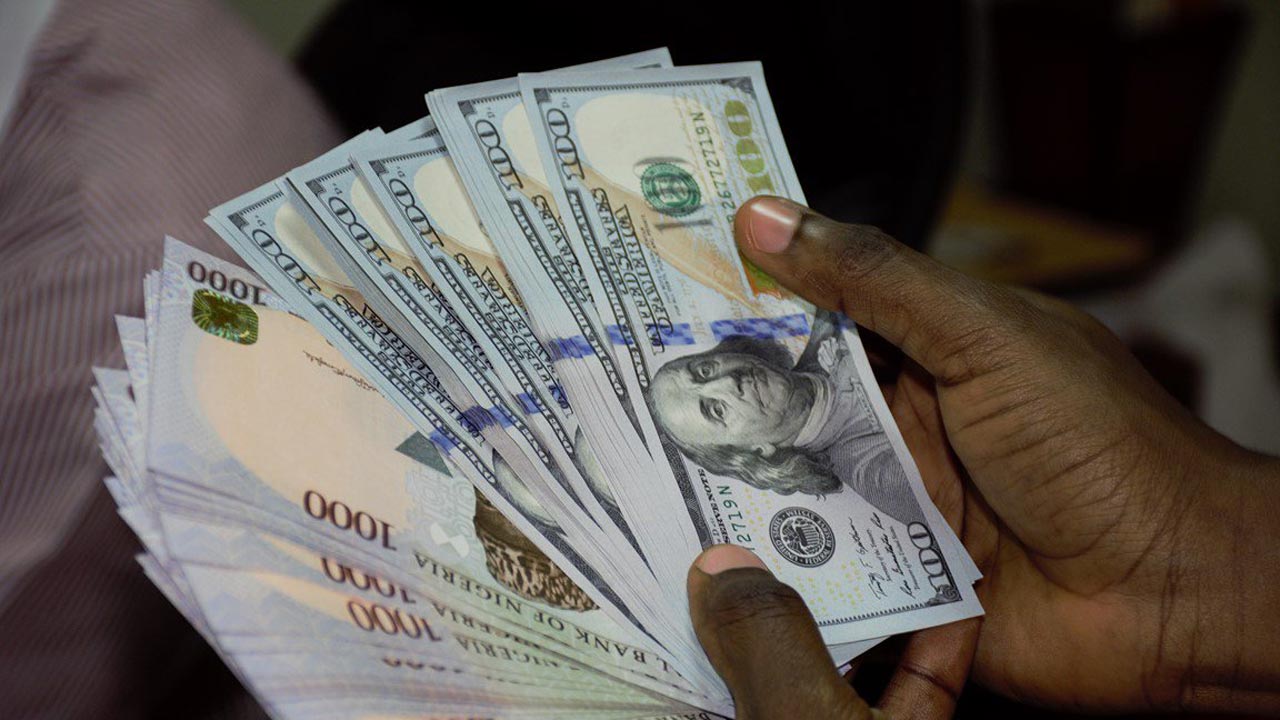ABUJA, Nigeria – The naira has shown signs of recovery against the dollar, trading at N910/$ as opposed to its previous value of N942/$ on Tuesday, August 15, 2023, as per the statistics from AbokiFX, a renowned online platform monitoring the exchange rates on the parallel market.
This positive trend can be traced back to the Central Bank of Nigeria’s (CBN) forthcoming measures to stabilize the naira, which has been witnessing a consistent decline against other major foreign currencies.
The Investors & Exporters window also displayed a shift. The naira’s trading began at 785.89/$, soaring to a peak of 799.90/$ before settling at 774.77/$ on Tuesday, August 15, 2023.
This depicts an improvement from its Monday’s closing rate of 764.68/$.
The CBN’s anticipated intervention appears to be working in favor of the naira, infusing confidence among forex traders and potential investors.
It remains to be seen how long-term these improvements will be, and whether the Central Bank’s strategies will produce a stable and lasting positive effect on Nigeria’s currency market.
However, businesses and individuals can heave a sigh of relief as the naira takes an upward turn after its prolonged decline.
Nigeria’s Central Bank Tightens Reins on Banks’ Shady Forex Sales
The Central Bank of Nigeria, CBN, has taken a definitive stance against commercial banks involved in illicit foreign exchange sales, with a stern warning of punitive measures against such institutions.
During a lecture in Abuja on Sunday, August 13, 2023, titled “Diaspora Remittances and Nigerian Economic Development”, the acting Governor of CBN, Folashodun Shonubi, highlighted the gravity of the situation and pointed out the significance of channelling remittances appropriately to spur economic development.
As a proactive measure, he revealed the establishment of a commission that will conduct surprise checks on banks suspected of engaging in unauthorized dollar sales.
In a bid to uphold transparency and integrity within the banking sector, Shonubi stated, “We need to name and shame commercial banks involved in such malpractices.”
Discussing the challenges of the current remittance system, the acting governor elaborated that transferring money to Sub-Saharan Africa from overseas costs approximately 8-9% for every $100 – a rate considered the highest globally.
Notably, Nigeria’s remittance receipt stood at a substantial $16.7 billion, though a significant portion of this influx evades the regulated market.
Shonubi stressed the CBN’s commitment to steering individuals toward formal financial avenues instead of shadowy, unregulated channels.
Reflecting on a past strategy to incentivize the public, where a N5 refund was offered to engage in formal transactions, he noted its ineffectiveness leading to its discontinuation.
Nevertheless, Shonubi acknowledged that the right incentives could be instrumental in luring individuals to legitimate platforms.
In line with the commitment to streamline and bring clarity to the forex market, he mentioned, “We will rename the foreign exchange market, known as the I & E market, to the Nigerian Foreign Exchange Market, as it is the sole market we acknowledge.”
Ayodele Adeleke, the National Institute of Security Studies Commandant, highlighted the lecture’s significance in broadening the nation’s perspective on critical security matters.
He asserted that such educational series are instrumental in enhancing the institute’s curriculum, providing direction and emphasis to its 10-month course.







